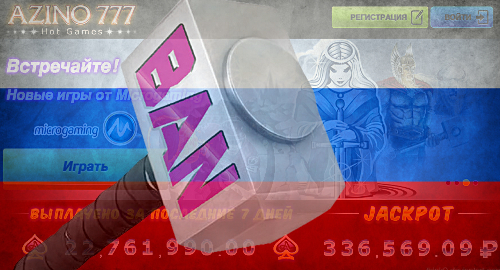 Russia’s digital censors are without a doubt the hardest working people in the online gambling sector.
Russia’s digital censors are without a doubt the hardest working people in the online gambling sector.
Russia’s telecom watchdog Roskomnadzor blocked nearly 14,500 unauthorized online gambling domains in the month of August, bringing the year-to-date total of blocked domains to over 76k, a 269% rise over the number of blocked domains in all of 2017.
Russia prohibits all online gambling except sports betting, and has to date issued 15 online sports betting licenses to Russian firms. According to July website traffic reports, Fonbet continues to lead the pack, reporting 10.1m visits, well ahead of runner-up 1xBet at 8.3m visits, while third-place finisher Liga Stavok was well back at 4.9m.
Russian-licensed sites are believed to capture about 60% of domestic online betting action but they face hurdles that their internationally licensed competitors – the ones Roskomnadzor strives so faithfully to sandbag – do not.
CUSTOMER REGISTRATION PROCESS HOLDING BOOKIES BACK
For example, consider the multi-stage process for signing up with one of Russia’s two official online betting payment channels, known as TSUPIS. Russia’s government has promised to streamline this process, but for the time being it represents a significant disincentive for Russian bettors to wager with locally licensed operators.
Take the word of Anton Rozkhovsky, chairman of the Mobilnaya karta (Mobile Card) processor that handles payments for the 10 operators who belong to the First Self-Regulatory Organization (First SRO) of Russian Bookmakers. (A rival group, the Bookmakers SRO, utilize JSC KIWI-Bank for its members’ TSUPIS.)
In an interview with Russian media outlet RG, Rozkhovsky said the First SRO’s TSUPIS had registered over 1.5m players, but only about two-thirds of those players had followed through with the final stage in the registration process, i.e. physically presenting their passport at a Mobilnaya karta retail outlet.
RUSSIAN POL THREATENS ONLINE CASINO-PROMOTING RAPPERS
Meanwhile, Russian politicians continue to brainstorm on ways to combat the popularity of unauthorized online casinos such as the Curacao-licensed Azino777, which embarrassed Russia’s watchdogs earlier this year by becoming the country’s top online video advertiser, beating out corporate giants like Pepsi and Mars.
Roskomnadzor has been doing its bit, as its domain blacklist now contains 3,250 Azino-related domains, ten times the number of Azino mirror sites that made the watchdog’s bad books just six months ago.
Russia’s Ministry of Culture is also proposing to allow Roskomnadzor to block online video sites that contain pirated material — the type of platforms that have allowed Azino777 to build its reputation — without obtaining a court order. Blocked sites would be required to go through the courts to prove their clean hands and free their blocked domains.
Azino’s online promos have used a number of Russian rappers to sing the site’s praises, leading some pols to threaten said rappers with “administrative punishment” if they don’t knock it off. This week, a member of Russia’s parliament suggested prohibiting these rappers from plying their trade in Russia if they don’t stop promoting “completely ugly things.”
Denis Parfyonov, a member of the State Duma committee on issues of self-government, told a public forum that the way to “economically influence the stars of show business” would be to remind said stars that there could be “a liability in the form of exclusion from concert venues, to the possibility of selling tickets to their events or recording their albums.”
Bottom line, don’t be surprised if you encounter a lot more down on their luck rappers busking outside a Moscow subway station or selling their bling at local pawn shops.